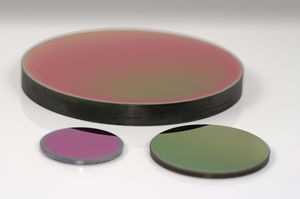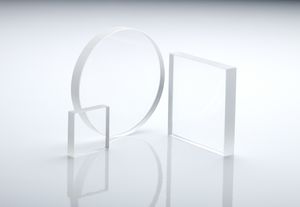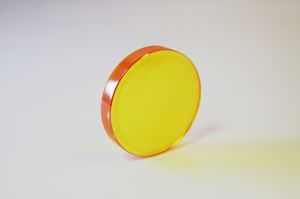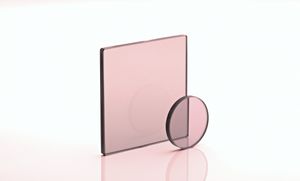
- Industrial machines and equipment
- Surface Treatment Equipment
- Optical crystal
- Knight Optical (UK) Ltd
Lithium fluoride (LiF) crystal optical
Add to favorites
Compare this product
Characteristics
- Crystal type
- lithium fluoride (LiF)
- Technical characteristics
- optical
Description
Lithium Fluoride (LiF) is an excellent VUV transmitter and also transmits in the visible and infrared spectrums between 0.15-6µm. Transmission between these ranges is over 90%. Lithium Fluoride material is relatively soft with a hardness of about HK105 and, while largely insoluble in water, does degrade by atmospheric moisture at 400°C and softens at 600°C. A protective coating is recommended. LiF is dissolved in water, therefore suitable coatings must me applied to prevent the prism from being damaged in, for example, a spectrograph unit. The material can be used as windows with a small reflection loss and transparency region of 0.11 to 6µm. The use of 60° to 72° apex angle prisms are suitable for prism in spectroscopy. A problem occurs with long exposure to UV light this leads to devitrification. The refractive index varies from 1.4391 at 0.2µm, to 1.3918 at 0.6µm, and to 1.2975 at 6µm. The manufacture of optical components must be worked with extreme care as LiF cleaves very easily. Steep radii are known for causing surface tearing and thus damage to the lens or prism.
Applications commonly include UV transmission windows and analysis crystals in X-Ray monochromators, as well as a variety of lenses and prisms for use in VUV, UV, Vis and IR spectrums. Windows and prisms are used in spectrographs for the wavelength region, and especially in the VUV.
Catalogs
No catalogs are available for this product.
See all of Knight Optical (UK) Ltd‘s catalogsRelated Searches
*Prices are pre-tax. They exclude delivery charges and customs duties and do not include additional charges for installation or activation options. Prices are indicative only and may vary by country, with changes to the cost of raw materials and exchange rates.












